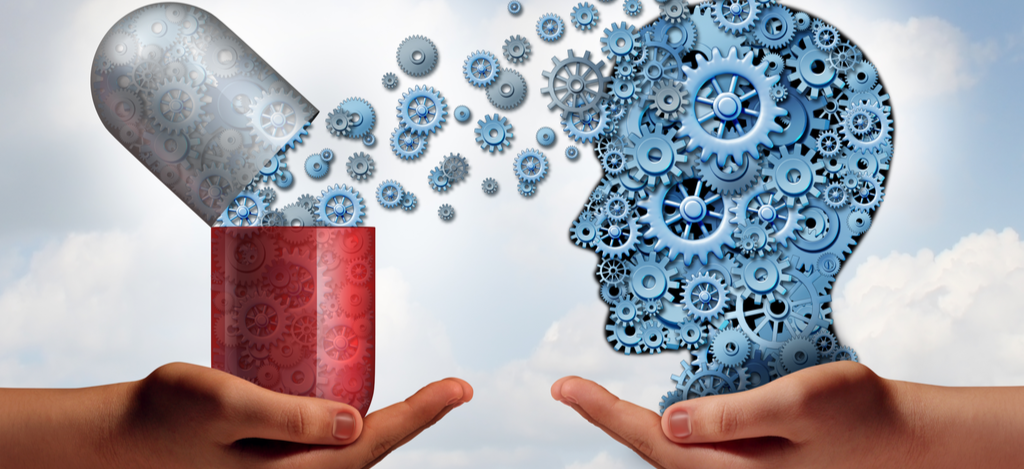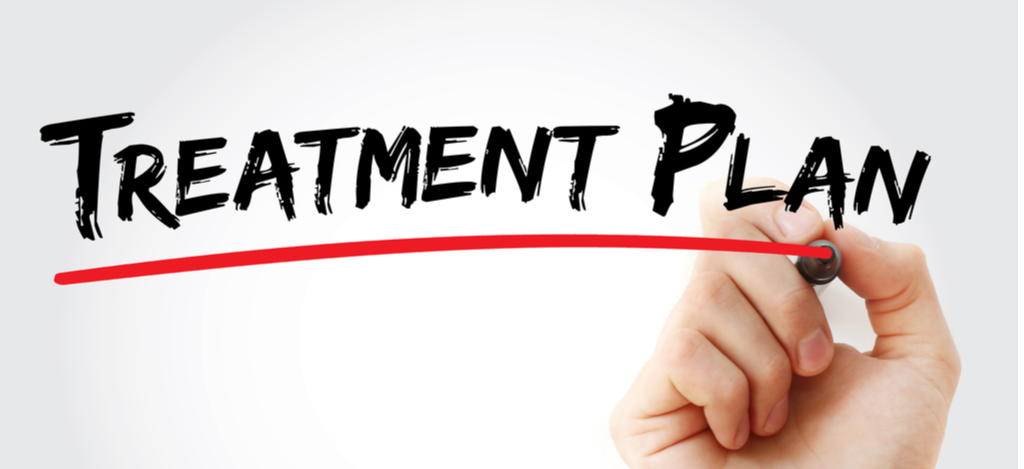How to Get Help for a Co-Diagnosis?
Recovering From Combined Substance Problems and Mental Illness
Table of Contents
How to Get Help for a Co-Diagnosis? If you are affected by substance problems or mental illness, you may have heard of something called a co-diagnosis. This is a term sometimes used to described combined symptoms of mental illness and drug or alcohol addiction. Today, doctors usually refer to this overlapping condition as dual diagnosis, co-occurring disorder or comorbidity.
Whatever the term used to describe it, co-diagnosis is a major issue for anyone who is affected. Why? On their own, addiction and non-substance-related mental illnesses can both seriously disrupt your life. When they occur together, the outlook for your health is not improved. In fact, the situation is quite the opposite. This means that, without treatment, your overall condition may become much worse than it otherwise would be.
Fortunately, you can get effective help for a co-diagnosis. Recovery from the condition is not easy. But with the right treatment, you can regain your health and well-being.

Get Help for a Co-Diagnosis: The Basics
By themselves, all substance use disorders are classified as mental illnesses. In cases of co-diagnosis, at least one other non-substance-related mental illness is present. Many forms of substance abuse or addiction can affect someone with the condition. You may also be affected by many different type of additional mental illness.
Dual diagnosis is not rare among people with substance problems. The same can be said in reverse for people with other mental illnesses. In fact, you have a roughly 50/50 chance of developing a separate mental illness if you have drug or alcohol problems. You also face the same risks for substance problems if you have a mental illness.
Why are these two conditions so firmly linked? Several factors help explain the undeniable connection. The first of these of these factors is the long list of shared potential causes. Examples of these causes include:
- Genetic tendencies
- The way your genes react to certain types of environments
- Environmental effects not linked to your specific genetic background
- The damaging impact of chronic stress and early-life stress
- Exposure to extremely traumatic events
- A personal history of child sexual or physical assault
Mental illness itself is also a factor. If you have such an illness, its presence may make you more likely to abuse drugs or alcohol. Why? A mental illness changes how your brain works. Unfortunately, the changes that occur make you more susceptible to substance problems. Your risks may be especially high if you try to self-medicate the symptoms of your condition.
The third reason for the connection is linked to substance use, substance abuse and addiction. Just like mental illness, substance use and substance problems alter your brain function. The specific changes you undergo increase the odds that you will develop an additional mental illness.
Why Do You Need Special Help for Co-Diagnosis
Why is dual diagnosis worse for your health than just mental illness or substance problems? When the two conditions are present together, their effects are not isolated. Instead, you experience symptoms of both problems at once. The impact is often cumulative. This means that you may feel a lot worse than you would if you were only dealing with addiction. It also means that you may feel worse than if you were only affected by mental illness.
A co-diagnosis does not only lead to a larger number of symptoms. It is also typically more difficult to treat than separate substance problems or mental illness. If you are going to recover, your doctors cannot just target one condition and ignore the other. This is true because the two problems are so strongly connected. Instead, you need a treatment plan that addresses them both. Otherwise, you may do a lot of hard work only to end up no better off than you started.
Even in the best of circumstances, dual diagnosis treatment is not easy. It takes a lot of work from both you and your treatment team. Still, recovery is a realistic possibility. To succeed, you must know what is needed for effective treatment. You must also know how you can get the help you need.
Where to Go for Help
If you think you are affected by co-diagnosis, speak to your doctor. Today, primary physicians know how to identify likely symptoms of substance problems and mental illness. They also know how to refer you to specialists who can follow up with proper treatment.
The best option for treatment is a specialized dual diagnosis treatment program. That is true because the staffs of these programs have the training needed to provide expert care. You need this level of expertise to make the most of your recovery odds.
Not all dual diagnosis programs operate in exactly the same way. Some facilities only treat substance problems or mental illness. To address the additional aspects of your condition, they coordinate your overall care with other facilities.
However, some programs take a different approach. Instead of coordinating your care with other facilities, they conduct all treatment onsite. This means that you can get access to all needed treatment resources at a single location. For many people, this is a much more convenient option.

How to Get Help for a Co-Diagnosis – Treatment Options:
Medication
Medication plays an important part in dual diagnosis recovery plans. For the treatment of substance problems, medication options are relatively limited. However, options are available for most types of mental illness treatment. Different medications are used for different purposes. For example, options used in alcohol treatment include:
- Naltrexone
- Disulfiram
- Acamprosate
In contrast, options for depression treatment include several entire categories of antidepressant medications.
What does this mean for dual diagnosis treatment? It is possible, or even likely, that your recovery plan will include multiple types of medication. In well-run programs, all treatment plans are individualized. This means that your doctors will use medications suited to your specific needs.
Behavioral Therapy
Behavioral therapy is also a mainstay of dual diagnosis treatment. Behavioral treatment gets its name because it helps you change harmful, habitual behaviors. It also helps you undo harmful, habitual patterns of thought. A number of behavioral therapies may be used for dual diagnosis recovery. That includes:
- CBT, or Cognitive Behavioral Therapy
- CM/MI, or Contingency Management/Motivational Incentives
- Exposure Therapy
- DBT, or Dialectical Behavior Therapy
- TCs, or Therapeutic Communities
- ACT, or Assertive Community Treatment
- IGT, or Integrated Group Therapy
Some of these therapies began as treatments for substance problems. Others began as treatments for mental illness. Today, all of them have been adapted to help treat both of these issues at the same time.
Each behavioral therapy has its own unique goal and effects. For example, CM/MI provides you with some kind of reward when you stick to your treatment plan. In turn, this can motivate you to increase healthy behaviors and cut out unhealthy behaviors. Therapeutic Communities are long-term residential programs. They give you the time and support needed to re-enter society.
Dialectical Behavior Therapy started out as a treatment for people with severe mental illness. It has since been adapted for dual diagnosis treatment. The main goal of DBT is to stop your from harming yourself during your recovery. That harm can take several different forms, including:
- Suicidal thinking or active suicidal planning
- Actual suicide attempts
- Cutting or other self-mutilation
- Substance use
Some behavioral therapies are only used to treat certain combinations of substance problems and mental illness. For example, IGT is designed to help people with drug or alcohol problems and a bipolar disorder. Exposure Therapy is a potential option for treating people with PTSD who are addicted to cocaine.
Devising Your Treatment Plan
Co-diagnosis treatment should be integrated. This means that, from the very beginning, it should address all aspects of your condition. To achieve this goal, it is common to receive help from a team of trained professionals. That team may include members such as:
- Doctors
- Psychiatrists
- Addiction specialists
- Mental health specialists
- Behavioral therapists
- Occupational therapists
- Nurses and other support staff
Each member of your team will work in coordination with the others. Their aim is to create a treatment plan customized for your specific situation. Throughout your time in treatment, your team will monitor your progress. They will also make any needed adjustments in your plan as your situation changes.
Your treatment team may also call on the services of professionals from other specialties. Depending on your situation, such professionals may include:
- Social workers
- Legal aids
- Vocational skills trainers
- Physical therapists
Together with your treatment team, these outside experts can address all areas of your recovery.

Learn More About How You Can Get Help for a Co-Diagnosis
Dual diagnosis is known for the far-reaching and damaging effects it can have on your health. Recovery is difficult, but the right kind of help will support your return to a stable daily routine. Need help for the many harmful effects of dual diagnosis? Contact the specialists at Emerald Isle today. We offer a full range of treatments for recovery from both drug and alcohol problems. We also offer high-quality programs for the treatment of mental illness. No matter how badly you are affected by your condition, we have options available to suit your situation.








